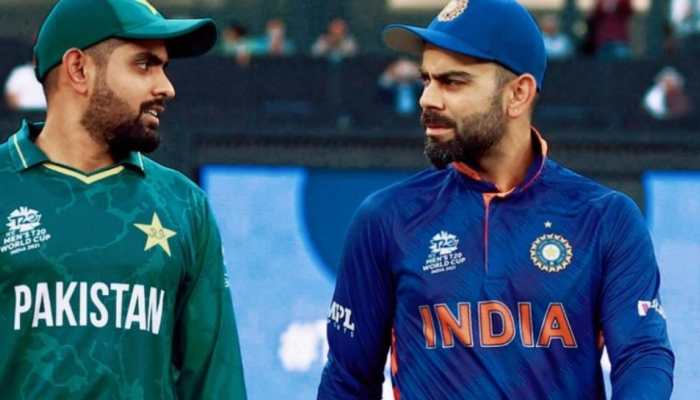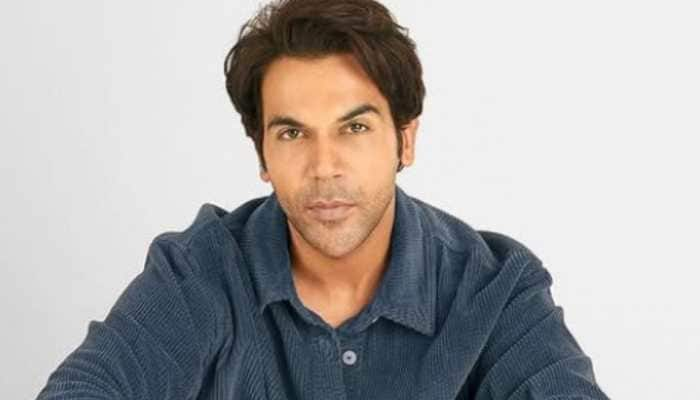‘Rajdhani Express’ review: An existential view of our society
‘Rajdhani Express’ works because it makes you reflect.
Trending Photos
)
Zeenews Bureau
There are movies that teach, like ‘3 Idiots’. There are movies that make a call for action, like ‘Rang De Basanti’. There are movies that show the so-called reality, like ‘Chakravyuh’. And then there’s ‘Rajdhani Express’, a movie that does all of that without getting all loud-and-shouty about it.
Crisp editing, strong compelling shots and an intriguing narrative have you gripped right from the start as the story follows a loosely non-linear timeline, with flashbacks of the past and memories of the protagonist Keshav, played by tennis ace Leander Paes, woven in seamlessly.
The story is simply what happens when four people, from different backgrounds and walks of life, share a first class compartment in the Rajdhani Express, traveling from Delhi to Mumbai.
First up, there’s the wonderfully Bengali PC Bannerjee, played by the fabulously talented Priyanshu Chatterjee. The philosophy-reading, light-hearted, rum-drinking Bong provides the movie’s comic relief as well as the most poignant dialogues and none of it seems out of place.
Then there’s Munish, played by Sudhanshu Pandey, a tall, fair and handsome man from the world of fashion, too vain for the streets, disdainful of the lower class and terribly posh. If Bannerjee represents an average middle class man, Munish definitely is the snobbish upper class.
There’s also the promiscuous Bollywood-aspiring, morally-unsound item-number performing Sunita, played by the unconvincing Puja Bose. She has the glamour and show of the upper middle class, aspiring towards the higher class but morals of one willing to do anything to get what she wants. While the character may have been intriguing and well-built, Puja Bose’s acting is a serious impediment, with her range of expressions being limited to an excruciatingly narrow repertoire of emotions.
The fourth, and most important, character is Keshav, played by debutante Leander Paes. The story is essentially about him, even as it holds a message that goes far beyond who he is. He represents the lower class and has an enigmatic intrigue about him. The movie shuttles back-and-forth, revolving around his present and past. Lee does well for his first movie and does justice to the fascinating character that is Keshav. One tends to even forget that it’s the tennis ace playing the role which is helpful as well.
Much of the movie features just these four characters and is perhaps a subtle indication of the interaction between the classes in India. Strong dialogues and a neat background score help the movie move along at a steady and convenient pace, while the lack of distractions like unnecessary songs or meaningless sub-plots help keep it on track.
There are others too though: Gulshan Grover plays the Ticket Checker Satyam Sharma and he’s excellent as ever. As is Minister Indrale, played by Ishrat Ali, the Marathi politician playing the intricate games that politics in India has become notorious for. Jimmy Shergill as the strong but fallible Deputy Commissioner Yadav is brilliant, portraying a difficult blend of command and vulnerability with various degrees of excellence.
Mukesh Rishi as inspector Dogra, Achint Kaur as a no-nonsense woman reporter and Shilpa Shukla as another cop are all very good too.
The editing by Chirag Jain is crisp and snappy and helps keep that edge through the movie. The use of different video filters for flashbacks works very well as the nostalgic flashbacks are a delightful combination of glossed out colours and sweet, tuneful music and songs, giving Keshav’s memories a rightfully soothing feel. Mohan Verma deserves special praise for some great cinematography. And due credit to Ashok Kohli for writing a compelling script and then translating it into an equally competent movie.
There are, of course, flaws too. Some of the actresses are unconvincing and there are times when the explanations given to create a situation aren’t perfectly in tune with the world of logic. The plot-line, furthermore, seems to move along in a vaguely random manner.
But as the movie unfolds, it becomes increasingly clear that while the story is being narrated, the focus is on society on the whole and the general public’s role in it. The story skirts carefully around the ‘preaching’ line and prefers to force the viewer to think. There’s no explicit call for action, no cry for justice or demand for change made, but as the final credits roll, there is a strangely stirring urge to change our entire system and care about what’s happening in India today.
“Public ke haalath ke zimmedaar public khud hai (the public is responsible for the mess it’s in)” says a pragmatic DY Yadav as the climax draws closer, wrapping the idea in a quick by-the-way line.
Existentialism rarely translates to a good Bollywood movie, but this is one rare exception. It helps that the story seems to go nowhere in particular and it isn't a suspense thriller. And perhaps it’s the unapologetic nature of the script and the characters or perhaps it’s the way a subconscious message is delivered without someone screaming it in your face, but ‘Rajdhani Express’ works because it makes you reflect and think without really asking you to do so.
If you like to reflect and want to watch a refreshingly thought-provoking movie, go watch it.
Stay informed on all the latest news, real-time breaking news updates, and follow all the important headlines in india news and world News on Zee News.
Advertisement
Live Tv
Advertisement







)
)
)
)
)
)
)
)
)
)
